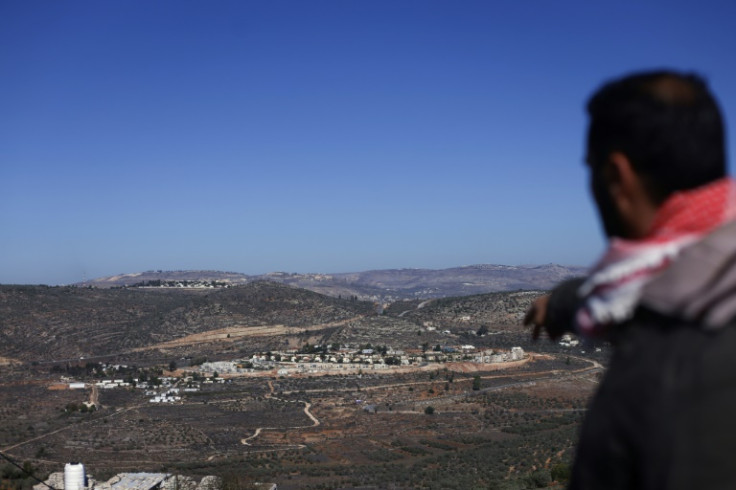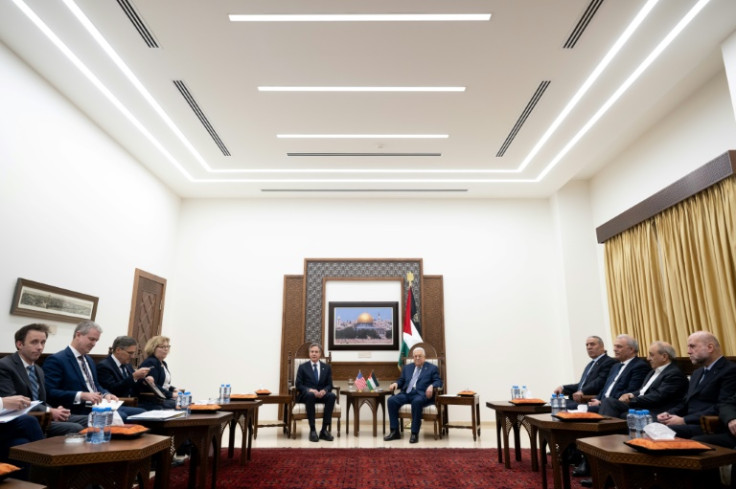
The United States said Tuesday it would refuse visas for extremist Israeli settlers behind a wave of violence against Palestinians in the West Bank, as it also asked Israel to do more to spare civilians in Gaza.
The visa measures amount to a rare concrete repercussion by the United States against Israelis in the nearly two-month-old war, in which President Joe Biden has nudged the US ally privately but also promised strong support.
"We have underscored to the Israeli government the need to do more to hold accountable extremist settlers who have committed violent attacks against Palestinians in the West Bank," Secretary of State Antony Blinken said in a statement.
"As President Biden has repeatedly said, those attacks are unacceptable," he said.
Blinken said the United States would refuse entry to anyone involved in "undermining peace, security or stability in the West Bank" or who takes actions that "unduly restrict civilians' access to essential services and basic necessities."
"Instability in the West Bank both harms the Israeli and Palestinian people and threatens Israel's national security interests. Those responsible for it must be held accountable," Blinken said.
State Department spokesman Matthew Miller said that dozens of settlers, who were not publicly named, would be affected. The visa ban also applies to their immediate family members.
Restrictions on entering the United States will not apply to extremist settlers who are US citizens.
Hamas militants stormed out of Gaza into Israel on October 7, killing around 1,200 people, mostly civilians, and taking around 240 hostages, according to Israeli officials.
In response, Israel vowed to destroy Hamas and has carried out air strikes and a ground offensive that have killed around 15,900 people, mostly women and children, according to the Hamas-run health ministry.
Even though Hamas does not control the West Bank, some 250 Palestinians have been killed there by Israeli soldiers and settlers since October 7, according to a Palestinian government tally.
The Palestinian Authority holds limited autonomy in the West Bank where Palestinians have complained of impunity over attacks and harassment carried out by settlers, some of whom have been serving in the Israeli military as forces are shifted to Gaza.
Prime Minister Benjamin Netanyahu is in a coalition with far-right parties that strongly support Jewish settlement of lands seized in 1967, construction that is considered illegal under international law.
Blinken visited both Israel and the West Bank last week just as a pause ended between Hamas and Israel.
The State Department said that Israel has shown "improvement" in targeting its strikes in Gaza as it voiced concern about a repeat of the widespread bombing at the start of the war.
"We will continue to monitor what's happening and will continue to press them to do everything they can to minimize civilian harm," said Miller, the State Department spokesman.
The United States has also promised more than $100 million in humanitarian aid to the Palestinians but has faced strong criticism in much of the Arab world for its diplomatic and military support of Israel.
J Street, the left-leaning pro-Israel US group that is frequently critical of Netanyahu, praised the visa restrictions as an "important first step."
It said that the Biden administration should specifically restrict two far-right ministers in Netanyahu's cabinet, Minister for National Security Itamar Ben-Gvir and Finance Minister Bezalel Smotrich.
Before entering politics, Ben-Gvir hung a portrait in his living room of Baruch Goldstein, the US-born settler who killed 29 Palestinian worshippers at a mosque in the West Bank city of Hebron.
The Biden administration has returned to the traditional US and international position of opposing settlements, although until now its stance has largely been rhetorical.
Previous president Donald Trump switched course, with Blinken's predecessor Mike Pompeo dropping objections to settlements and visiting one late in his term.








